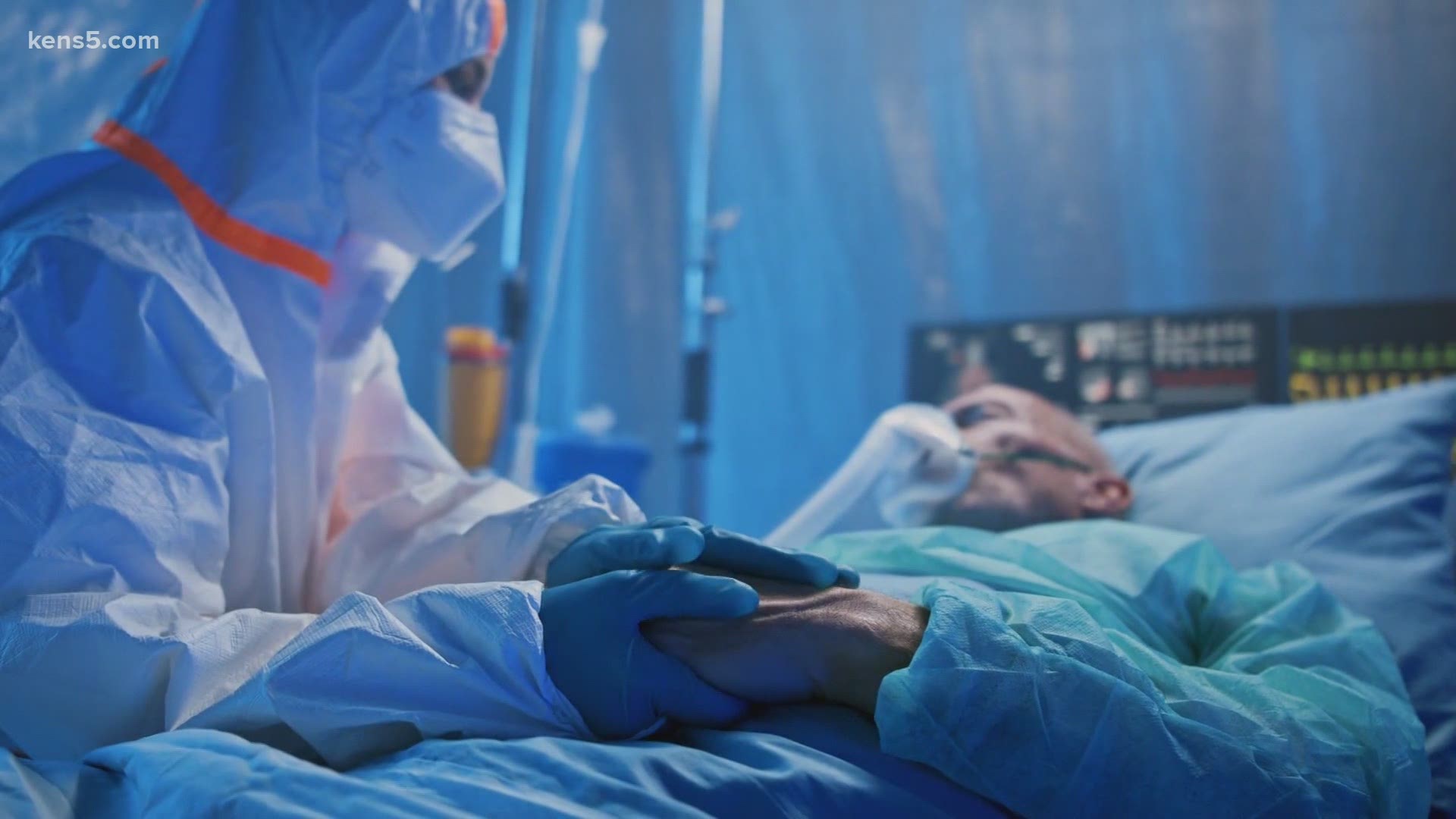SAN ANTONIO — One year into the coronavirus pandemic, scientists are still learning more information about the disease and its effects. Now, an alarming study out of the United Kingdom highlights severe long-term problems in many patients after they've recovered from the virus.
What exactly the long-term effects of COVID-19 are is still not set in academic stone because the virus is so new, which is why long-term studies like these are important.
"We do recognize if there are going to be a fair number of people if they've had a prolonged ICU stay or hospitalizations are going to be suffering from consequences in that long battle against the infection," said Dr. Jason Bowling, the hospital epidemiologist for University Health and an associate professor for infectious diseases at UT Health San Antonio.
Researchers at the UK's Leicester University and the Office for National Statistics found that, out of 47,780 people discharged from the hospital, 29.4% were readmitted within 140 days. Out of those, 12.3%, or one in eight, ended up dying.
The average age of each participant was 65.
"We know a lot of people continue to have some symptoms afterwards, but one of the concerns we've had with people with more severe prolonged hospitalizations is to what extent they may have damage to other organs," Bowling said.
The study found some of those long-term COVID complications to be increased incidents of Type 1 and Type 2 diabetes; respiratory disease in close to a third of discharged patients; heart problems; chronic liver and kidney conditions; and a higher risk of problems in the organs of those younger than 70, particularly ethnic minorities.
Bowling says the diabetes is of particular concern.
"Because we have a difficult time just detecting diabetes in people from standard risk factors," he said. "So adding COVID would increase the need for people to be screened for diabetes as well."
Bowling says that if you have had COVID – whether it was a moderate to severe infection, or even just a mild case – make sure you are seen by a primary care doctor periodically afterwards for general health maintenance.

